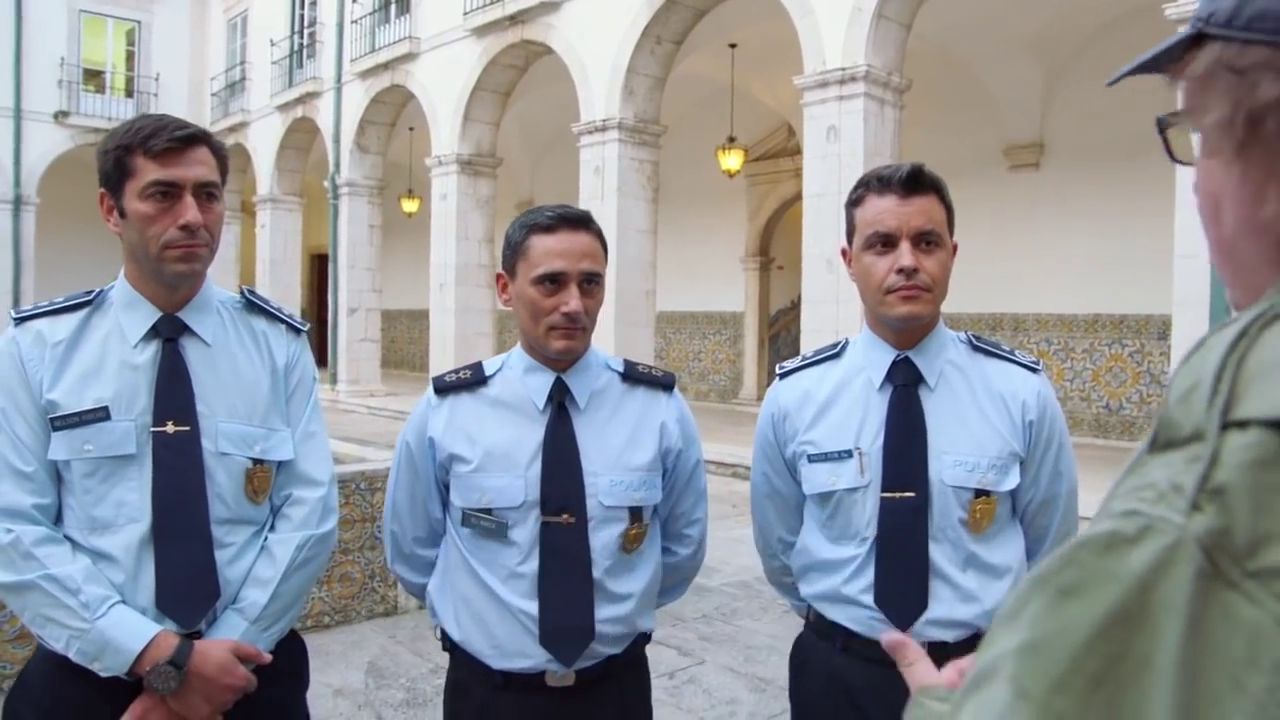By Chlotrudis Independent Film Society
Rating: 4 cats | 4.125 cats
Director: Michael Moore
Starring: documentray

Country: united_states
Year: 2016
Running time: 120
IMDB: https://www.imdb.com/title/tt4897822/reference
Jason says: “Michael Moore is likely the world’s best-known documentary filmmaker, and that is an obvious double-edged sword; while his first new film in years will certainly bring in one group of fans, the very fact that it’s from him will have other people threatening boycotts and dismissing anything in it out of hand. Hopefully not too many; because this particular picture should be thought-provoking (and funny) to nearly anybody who buys a ticket, and fairly funny to boot.
“His premise here is presented in a fashion that maybe blows past whimsy and into heavy-handedness – that the Pentagon, frustrated with sixty years of wars that have ended in stalemates at best and brought little back to the US, has charged Moore to find a new place for them to invade, with something useful as a return. Thus, the film follows him to nine countries, mostly European, with each segment ending on him planting an American flag in front of the bemused people he has been interviewing, claiming the idea for the United States. It’s a goofy way to present the story that leads to a few funny moments but also occasionally requires Moore to be ‘in character’, which is not exactly his forte, although he is not so committed to it that it ever gets in the way of the information he’s trying to relate.
“And what would he offer to the world as being worth emulating? Italian vacation time; French school lunches; Finnish & Slovenian education; German accountability; Portuguese drug decriminalization; the Norwegian prison system; the requirements for equal female representation in Tunisian and Icelandic politics. Each of these countries gets about ten or fifteen minutes, and that proves to be just enough time for Moore to introduce a concept, make some often corny but ice-breaking jokes, talk to a few people who seem reasonably sincere about why these ideas are good for a country beyond the obvious reasons, and move on. There are probably practical rebuttals to be made to some, but the presentation of the ideas is strong and clear. Clear enough to start a conversation, at least, and to a certain extent, frame that conversation in terms of what Moore has found in other countries being the path to a moral good end.
“Does that make the movie a bit of a lecture? At times, but it’s not like this filmmaker has ever been about making points with subtlety. Still, he’s probably a bit cannier about the subjects he chooses and how he presents them than his reputation might suggest. There are two segments on crime and punishment, but he never brings up gun control, and he treads very lightly around access to abortion in Tunisia, and it can’t be an accident that those are two subjects that can most easily flip a switch to get certain viewers to dismiss everything. He ends the film reminiscing about being in Germany for the fall of the Berlin Wall, and while the point is to defuse talk that implementation of these ideas in America would be all but impossible (‘Hammer, Chisel, Down!’ becomes the rallying cry), it’s also a connection to a major change that Republicans feel some ownership of. He’s also not shy about appealing to American pride and patriotism when things sound difficult or too foreign.
“There’s also something very likable about how he frequently seems genuinely surprised at some of what he discovers – he’s almost in awe of the Finnish teenagers who speak half a dozen languages and taken aback by how passionately some of the people he interviews use the camera to plead with their American counterparts, like he was expecting to have his country called stupid and mocked only to come across people who want to help. He sometimes struggles with connecting messages – it’s a bumpy road from how Germany empowers workers to have a say in their company’s direction to how they drill the sins of World War II into the heads of their young to make sure it never happens again, for instance – but he seems inspired by the general good nature of the people he talks to, using the jokes as lubrication more than as pointed stingers.
“That the people who could most benefit from seeing something are often the most dead-set against doing so is a kind of patronizing thing to say, but there’s a kernel of truth in it. This likely won’t hurt WHERE TO INVADE NEXT at the box office too much, but here’s hoping that it at least inspires enough curiosity to get a broader audience than just those already on Moore’s wavelength. There’s ideas worth considering in it, and it’s not like they haven’t shown practical results. 4.25 cats
“Seen 25 October 2015 in the Brattle Theatre (IFFBoston Fall Focus, DCP)”
Thom says: “It’s been 6 years since CAPITALISM: A LOVE STORY so it’s nice to see loving curmudgeon Michael Moore back on the boards. Now known throughout the cinematic landscape for his ironic, acerbic, even powerful diatribes against the failings of America for becoming a violent culture, with lackluster education, and constant attacks against universal health care, here he decides to ‘invade’ other mostly Western countries to see what they are doing better than the United States. Unfortunately, besides being a thorn-in-the-side to politicians everywhere, does anyone ever attend these films not going in that they will agree with the vast majority of the opinions rendered? Here we see the better education in Finland, the better-fed students of France running across all social strata, the more compassionate in Norway, health care all over Europe, etc., etc. It’s thoroughly fascinating, and except for a misnaming of a country visited, carefully and expertly filmed. Bless his heart for making these inspiring documentaries. 4 cats”
